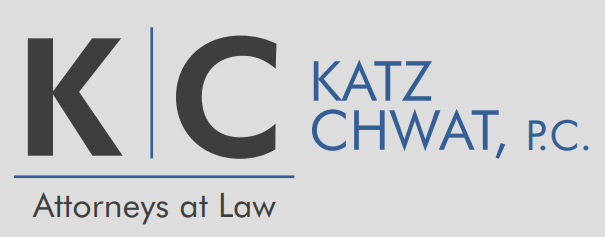 |
At KVLSM we care about our clients and community. Therefore, we are
dedicated in keeping you up to date on the latest status of COVID-19
Below please find details on the CARES Act provided by the firm of
Katz Chwat, P.C. and is reproduced with their permission:
The Coronavirus Aid, Relief, and Economic Security Act ("CARES Act")
On Friday, March 27th, President Trump signed into law the Coronavirus Aid, Relief and Economic Security (CARES) Act . The nearly $2 trillion relief package is intended to supplement previous acts of the Federal and State governments, including the Family First Coronavirus Response Act. The goals of the CARES Act are to stimulate the economy and keep businesses and individuals afloat during the COVID-19 pandemic that has had an unprecedented impact on American life. Below is a brief description of the major tax provision of the CARES Act.
Businesses Provisions:
Employee Retention Credit ( §2301 of the CARES Act ) — Employers subject to closure due to COVID--19, and employers suffering a significant drop in gross income may be eligible for a refundable payroll tax credit equal to 50 percent of certain qualified wages paid or incurred from March 13, 2020, through December 31, 2020.
Delay of Payment of Employer Payroll Taxes ( §2302 ) — Permits employers and self-employed individuals to defer payment of the employer share of the Social Security tax obligation for the remainder of 2020. One-half of the deferred employment tax is required to be paid in each of the following two years.
Modifications for Net Operating Losses ( §2303 ) — The Act temporarily suspends the 80% taxable income limitation and allows NOLs arising in 2019 and 2020 to be carried back for 5 years.
Acceleration of Corporate AMT Credit ( §2305 ) — 100% of unused minimum tax credits can be used by C Corporations in 2018 and 2019.
Deductibility of Interest Expense ( §2306 ) — For most businesses, the Act, retroactively increases the limit on interest deductibility to 50% of Taxable Income for 2019 and applies the same limit to 2020.
Qualified Improvement Property Technical Correction ( §2307 ) — The Act includes the long-awaited technical correction for Qualified Improvement Property providing a 15-year recovery period thus making it eligible for Bonus Depreciation and makes the rule effective for property placed into service after December 31, 2017.
Individual Tax Provisions:
Recovery Rebate Credit Payments ( §2201 ) — Advance credit stimulus payments will be made to eligible taxpayers based on 2019 (or 2018); reported income. The base amount of $1,200 per taxpayer and $500 for each qualifying child is subject to a phase-out for high-income taxpayers.
Waiver of Early Retirement Plan Distribution Penalty on Retirement Plan Distributions ( §2202 ) — The Act allows up to $100,000 to be withdrawn from a retirement plan without being subject to the 10% penalty for early withdrawals where the distribution is made by an individual, if the individual or a family member is diagnosed with COVID-19, or suffers financial distress as a result of the pandemic.
Waiver of Certain Retirement Plan Minimum Distribution Rules ( §2203 ) — The Act waives, for 2020 only, any minimum distributions required from certain retirement plans and accounts.
Above-the-Line Charitable Contribution Deduction ( §2204 ) — For 2020, individuals that do not itemize their deductions will be allowed to deduct up to $300 of qualified charitable contributions as a deduction from gross income.
Modified Cash Charitable Contribution Limitation ( §2205 ) — Individual taxpayers will not be subject to any AGI limitation for cash contributions made in 2020. The limitation for C Corporations is increased from 10% of TI to 25% of TI for 2020.
Exclusion for Certain Employer-Paid Student Loans ( §2206 ) — Pursuant to the Act, eligible student loan payments (with a maximum of $5,250) made by a taxpayer's employer before January 1, 2021, will be excluded from the taxpayer's income.
Modification of Limitation on Losses for Non-Corporate Taxpayers ( §2304 ) — As a result of the Act, the excess business loss rules imposed pursuant to the Tax Cuts and Jobs Act will not apply to the tax years 2018, 2019 and 2020.
In addition to the above provisions, The CARES Act provides relief (the "Paycheck Protection Provision") for certain businesses in the form of loans that can potentially be forgiven, effectively converting some or all of the loan into a grant. The provisions of the Paycheck Protection Provision and the implementation of the process are continuing to evolve and will be addressed in future updates.
These provisions will all be addressed in greater detail by Neil in an upcoming webinar. Please continue to check your email for information on the webinar. In the interim, please feel free to reach out to us with any questions you may have, and we will answer them based upon the available information. We appreciate your understanding that these provisions are brand new to us, as well, and as such we may not have the answer to all the issues that these new rules create.
The above is provided for informational purposes only. Nothing herein shall be considered to be legal advice nor create an attorney-client relationship.

175 Broadhollow Road, Suite 130, Melville, NY 11747 | Phone: 631.683.8700
|
 |



